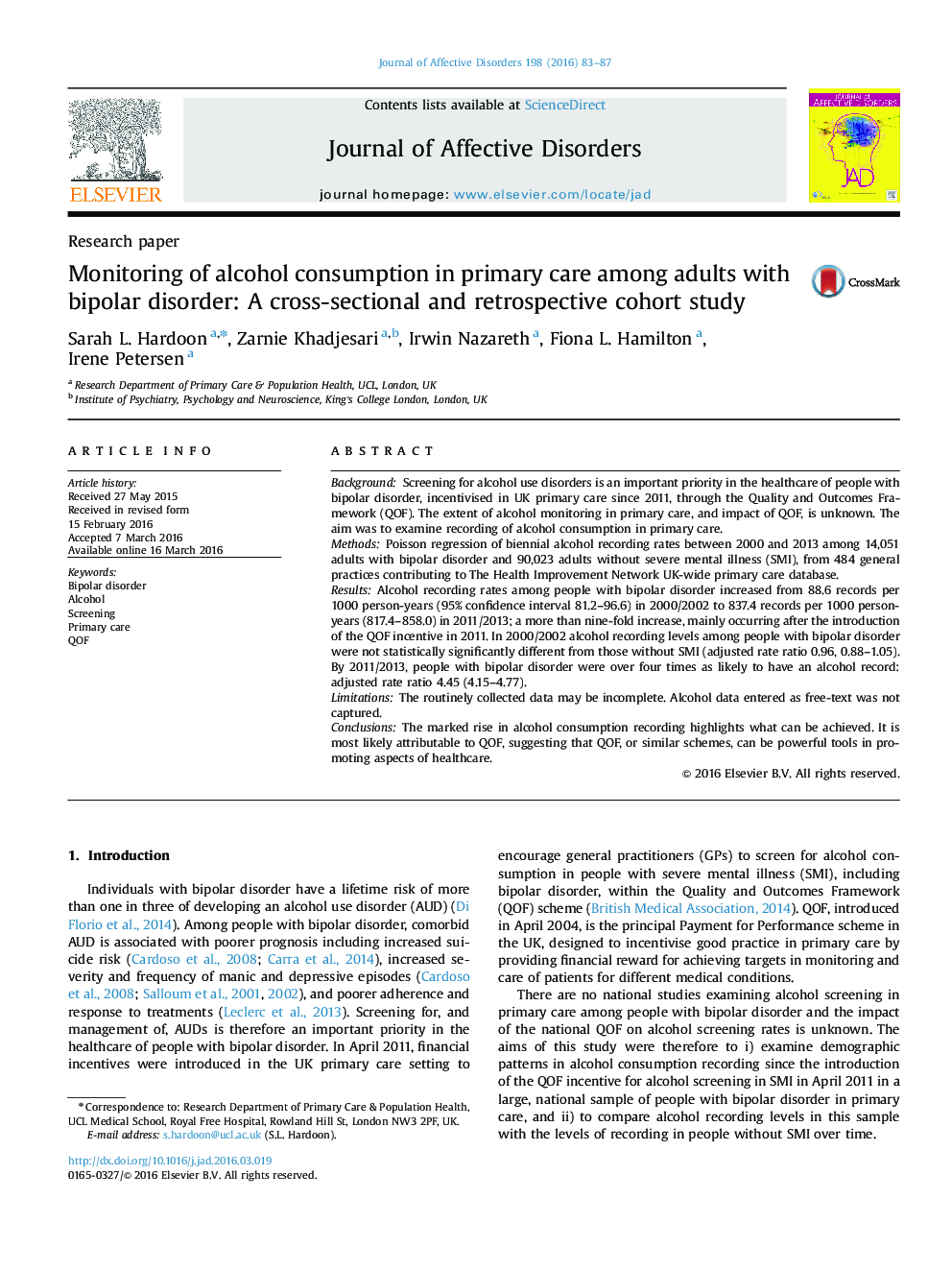| Article ID | Journal | Published Year | Pages | File Type |
|---|---|---|---|---|
| 6230189 | Journal of Affective Disorders | 2016 | 5 Pages |
â¢Alcohol monitoring in people with bipolar disorder in UK primary care was examined.â¢Alcohol recording rates rose more than nine-fold between 2000 and 2013.â¢In 2011-13 over 80% of people with bipolar disorder had their alcohol level checked.â¢By 2011-13 recording was four times higher than in people without bipolar disorder.â¢The favourable trend coincides with the launch of incentives for alcohol screening.
BackgroundScreening for alcohol use disorders is an important priority in the healthcare of people with bipolar disorder, incentivised in UK primary care since 2011, through the Quality and Outcomes Framework (QOF). The extent of alcohol monitoring in primary care, and impact of QOF, is unknown. The aim was to examine recording of alcohol consumption in primary care.MethodsPoisson regression of biennial alcohol recording rates between 2000 and 2013 among 14,051 adults with bipolar disorder and 90,023 adults without severe mental illness (SMI), from 484 general practices contributing to The Health Improvement Network UK-wide primary care database.ResultsAlcohol recording rates among people with bipolar disorder increased from 88.6 records per 1000 person-years (95% confidence interval 81.2-96.6) in 2000/2002 to 837.4 records per 1000 person-years (817.4-858.0) in 2011/2013; a more than nine-fold increase, mainly occurring after the introduction of the QOF incentive in 2011. In 2000/2002 alcohol recording levels among people with bipolar disorder were not statistically significantly different from those without SMI (adjusted rate ratio 0.96, 0.88-1.05). By 2011/2013, people with bipolar disorder were over four times as likely to have an alcohol record: adjusted rate ratio 4.45 (4.15-4.77).LimitationsThe routinely collected data may be incomplete. Alcohol data entered as free-text was not captured.ConclusionsThe marked rise in alcohol consumption recording highlights what can be achieved. It is most likely attributable to QOF, suggesting that QOF, or similar schemes, can be powerful tools in promoting aspects of healthcare.
